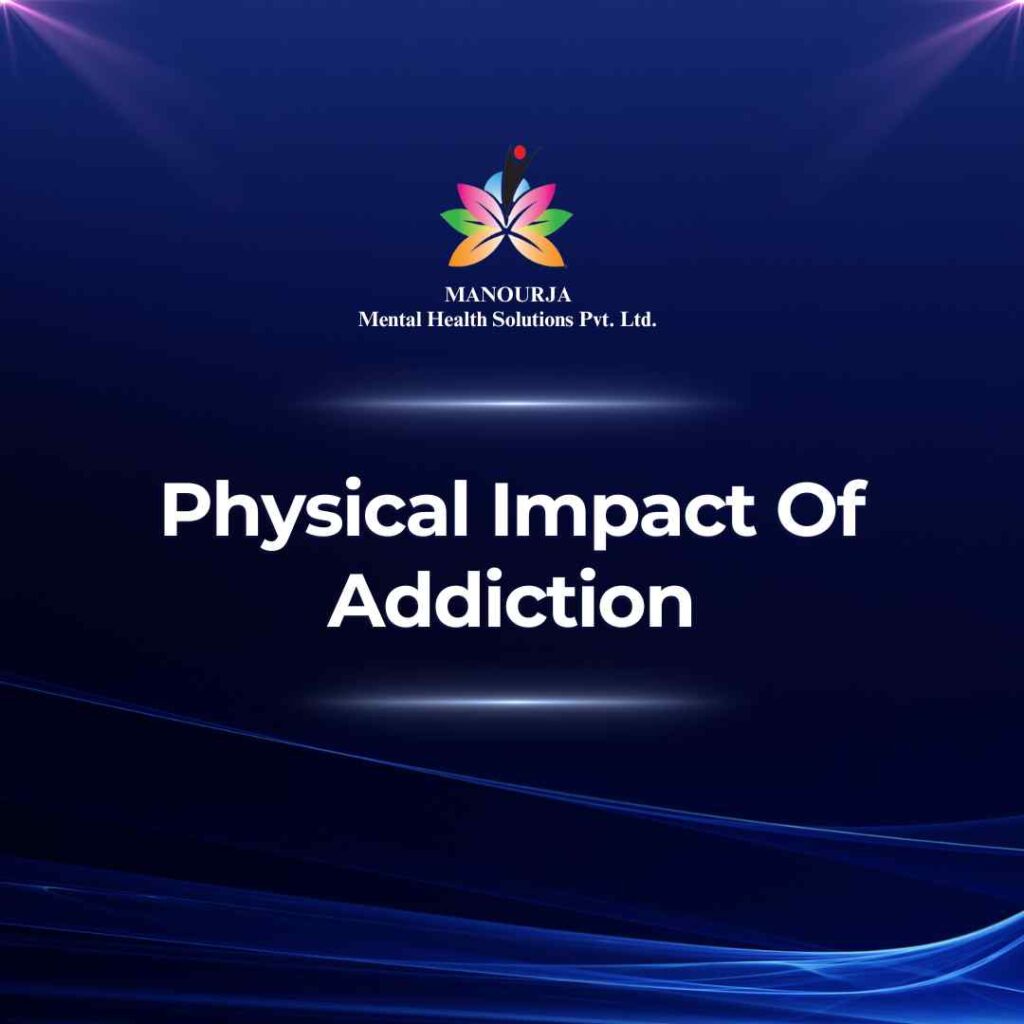Physical Impact of Addiction

Addiction exerts a profound influence on the body, leading to a range of physical consequences that extend beyond the immediate act of substance use or engagement in addictive behaviors. Understanding the physical impact of addiction is crucial for appreciating the comprehensive toll it takes on an individual’s health.
Here are some key aspects of the physical impact of addiction:
- Neurological Effects: Prolonged substance use can lead to changes in the brain’s structure and function, affecting areas responsible for decision-making, impulse control, and reward processing.
- Increased Heart Rate and Blood Pressure: Stimulant substances may elevate heart rate and blood pressure, contributing to cardiovascular strain and an increased risk of heart-related issues.
- Lung and Respiratory Issues: Smoking substances, such as tobacco or certain drugs, can lead to respiratory problems, including chronic obstructive pulmonary disease (COPD) and other lung disorders.
- Liver Damage: Excessive alcohol consumption can result in liver damage, progressing from fatty liver to more severe conditions like alcoholic hepatitis and cirrhosis.
- Digestive System Complications: Substance abuse may cause gastrointestinal problems, including inflammation, ulcers, and an increased risk of gastrointestinal bleeding.
- Weakened Immune Response: Substance abuse can suppress the immune system, making individuals more susceptible to infections and illnesses.
- Hormonal Imbalances: Addiction can disrupt the endocrine system, leading to hormonal imbalances that impact various bodily functions.
- Dental and Oral Health Issues: Substance use, especially in forms like smoking or drug consumption, can contribute to poor oral health, including tooth decay and gum disease.
- Nutritional Deficiencies: Addiction may lead to malnutrition, with individuals neglecting proper nutrition, resulting in weight loss or gain.
- Bone and Muscle Weakness: Chronic substance use can weaken bones and muscles, contributing to conditions like osteoporosis and muscle atrophy.
- Increased Risk of Injuries: Impaired coordination and judgment associated with substance use increase the risk of accidents and injuries.
- Fertility and Sexual Dysfunction: Substance abuse can interfere with reproductive health, leading to fertility issues and sexual dysfunction.
- Tolerance and Withdrawal Symptoms: Continued substance use often results in tolerance, requiring higher doses for the same effect, and withdrawal symptoms when not using.
- Skin Disorders: Certain substances may contribute to skin issues, ranging from acne and rashes to more severe conditions.
- Motor Skills Dysfunction: Substance use can impair neuromuscular coordination, affecting motor skills and overall physical coordination.
Understanding the physical impact of addiction underscores the urgency of comprehensive interventions that address not only the psychological but also the physiological consequences of substance use and addictive behaviors. Effective treatment approaches aim to restore and maintain physical well-being as part of the recovery process
At MANOURJA, we believe in the transformative power of counseling. Our experienced therapists offer a safe and supportive space where you can explore your thoughts, emotions, and challenges. Through personalized counselling sessions, we’ll work together to develop coping strategies, build resilience, and achieve lasting positive change. Discover the path to a healthier, happier you with MANOURJA counselling services.
MANOURJA Rehabilitation Services
At MANOURJA, we’re dedicated to helping you in rebuild your life, after difficult times. Our rehabilitation services focus on understanding what you need to move forward, whether you’re recovering from addiction, trauma, or any psychological – social challenges. We create personalized plans, that are all about helping you, regain your strength and find hope again. With a caring team by your side, you’ll have the support to make real progress and take steps toward a brighter, healthier future
